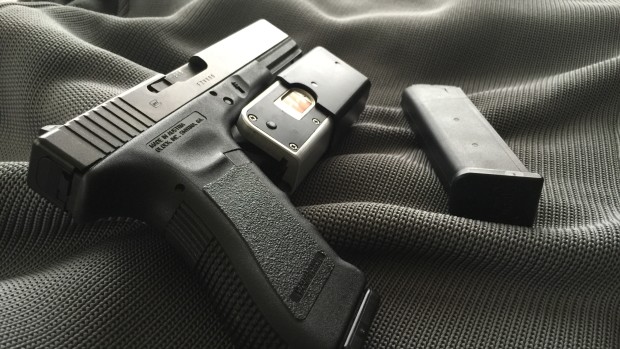
Yesterday, US President Barack Obama gave a speech about some measures he’s taking — executive actions, the common parlance for “literally nobody will help me out with this so I’m going to try it myself as the President” — to try to reduce the number of gun deaths in the country from roughly thirty thousand a year to pretty much anything less than that.
Me, I’m in favour of very strong gun control. I don’t think you need a handgun in your house, for instance (sorry), because for the most part it makes you less safe. I think the Australian and UK and Japanese laws for gun control are far superior to anything any American government will ever pass into law. But that’s because I’m not an American, I suppose, and therefore don’t think everyone should have the right to lethal weaponry. And I especially don’t think everyone should have the right to any lethal weaponry, anywhere and anytime they please.
But fine. Americans have the right to guns. It’s how the law has been interpreted and even the President knows this. In his words, “I taught constitutional law, I know a little bit about this.” So he’s proposed a few exceedingly minor changes: more background checks, investment in mental health, more ATF (alcohol, tobacco, firearms) officers to enforce the laws currently “on the books” as they say. But the thing that caught my eye was investment in research. Here are the two relevant parts of the speech:
Those are directly transcribed.
Regarding number one, he rightly refers to the fact that in 1996 Congress passed a law restricting funding research into gun violence. That’s a large part of why we can’t do anything about it — we don’t know the exact causes of the problems because (I assume) of the well-founded fear on the part of the gun lobby that we’d discover that fewer guns leads to fewer gun deaths. I don’t think that can be changed by Presidential fiat — if it could it would have been done by now.
But number two is a clever way around it: don’t fund research into gun violence, fund research into gun safety technologies. Now, there’s still that law on the books in New Jersey that’s leading the NRA to fight any and all “smart gun” research. But there are also clever devices beginning to emerge that would perform the same function without (probably) triggering the law.
Take this little critter, the Veri-Fire Guardian. It only reached 25% of it’s $100,000 Indiegogo campaign, but the idea was simple: an additional device that you attach to a handgun. It covers the trigger, so it can’t be fired. And it has a fingerprint reader that pops the guard open in under a second if you’re authorized to use it. If the President wants neat devices to improve gun safety, he could fund the development of products like that — smart gun accessories, we could call them — and then offer them subsidized or free of charge to handgun owners. A modification kit to make your gun easier to locate when it’s been stolen wouldn’t hurt either.
These technologies won’t do a damn thing about the roughly twenty thousand gun suicides every year, of course. They won’t stop the police from fatally shooting nearly a thousand people a year, either. They certainly won’t stop any of the mass shootings that happen roughly every two weeks on average in the US. But they might stop some of the five or six hundred people who die each year by accidentally shooting themselves or others, especially those involving children.
If you ask me, even one life saved is worth the effort. Small moves, folks. Small moves.
***
Richard Ford Burley is a writer and doctoral candidate at Boston College, as well as an editor at Ledger, the first academic journal devoted to Bitcoin and other cryptocurrencies. In his spare time he writes about science, skepticism, feminism, and futurism here at This Week In Tomorrow.
